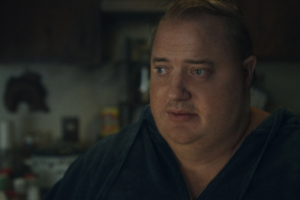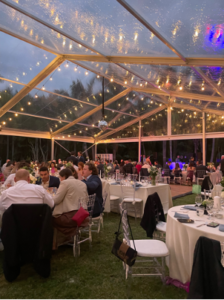Did you listen to Biden’s State of the Union address? Did you hear what he said about his economic priorities?
He said he was going to make America great again by opening oil and gas exploration, reducing the budget deficit, and mandating “Made in America” for manufactured goods.
Huh? Aren’t those Donald Trump’s talking points!
It was such a startling departure from the Democratic party’s prior positions that I found myself momentarily worried for Biden. Worried that he would be harshly called out the next day by both the right- and the left-leaning media.
But no. His pivot to an America-first economic agenda was barely mentioned by the mainstream press. And when it was, the attitude was supportive.
None of my liberal friends mentioned it. Perhaps because they didn’t watch the speech. Not many people did. (It drew an estimated 27.3 million viewers, less than 10% of the population, and the lowest for a SOTU in at least 30 years.)
What happened? Here’s my take:
That Was Then
Prior to the 2020 election, polls showed that the number-one concern of US voters was COVID-19. This was, as you would expect, truer for Democrats than for Republicans. But it was enough of a concern for all Americans that it turned out to be the tipping point that gave the presidency to Joe Biden.
If you remember, Trump’s campaign was all about urban violence, which had spiked nationwide, but especially in the large, Democratic-run cities. Biden’s was all about the threat posed by the “unmasked” and the “unvaccinated.”
The Biden strategy, as it turned out, was the stronger one. The Trump haters and the Trump lovers were never going to be swayed. But tens of millions of voters were in the middle. And as the summer ended and fall began, fear of the pandemic stayed strong, while fear of urban crime ebbed enough to put Biden in office.
This Is Now
Since then, things have changed. Significantly.
Hardly anyone is afraid of COVID any more. The facts are being gradually released. COVID was and is a serious threat to a small portion of the population: those that were/are over 65, overweight, and suffering from “comorbidities” like diabetes. For the rest, the danger of COVID was about the same as the regular flu.
Meanwhile, prices of almost everything began to edge up slightly in 2020. They rose 4.5% in 2021, then climbed as high as 8.5% in August of 2022. Instead of acknowledging this, Biden’s advisors were doing everything they could to deny it – calling it a hoax, then temporary, then blaming it on Putin, then on the gas stations, etc.
That strategy didn’t work. Ordinary earners could feel the reality of inflation every time they went shopping or filled their gas tanks. The trillion-plus dollars in COVID relief that the government had spread around a year or so earlier was being spent down. Savings were disappearing. Money was getting tight.
So, regardless of what voters’ political opinions might have been, they began to worry about the economy. That has become increasingly clear from polling.
A Gallup Poll released last week reported that half of those asked said they were worse off economically than they were this time last year. Only 35 percent said they were better off. (Since Gallup first asked this question in 1976, it has been rare for half or more of Americans to say they are worse off. The only other times it happened were during the Great Recession era of 2008 and 2009.)
And economic concerns dominated the top 10 spots of a just-released poll by Pew Research that ranked Americans’ greatest fears. (Also noteworthy: COVID wasn’t even in the top 20. It was outranked not only by economic concerns but by social fears that are traditionally promoted by right-leaning politicians and media, such as crime, terrorism – foreign, not domestic – and immigration.)
Given these drastically changing sentiments among voters, had I written Biden’s State of the Union speech, I’d have crammed it full of Trump talking points and promises to win back the undecided voters. And that, by gosh, is exactly what his speechwriter did!
For more on this from Gallup, go here.
And for more from Pew Research, go here.










